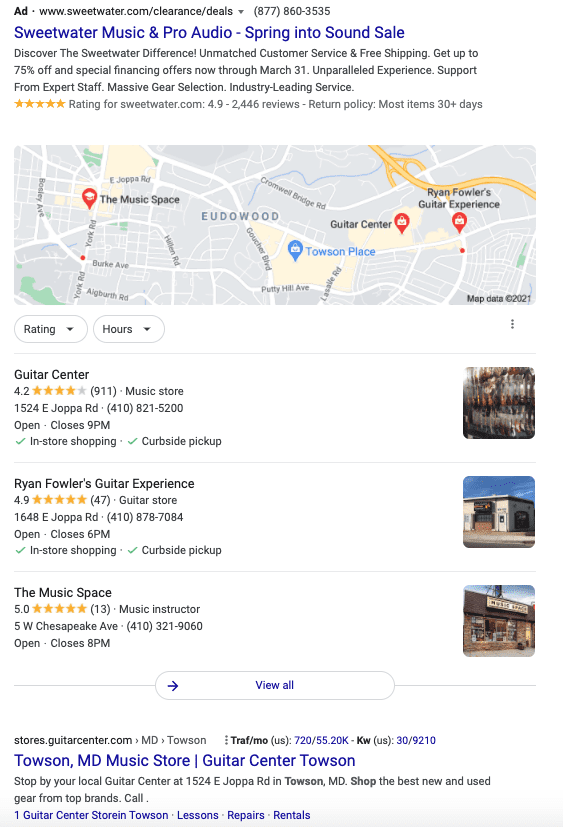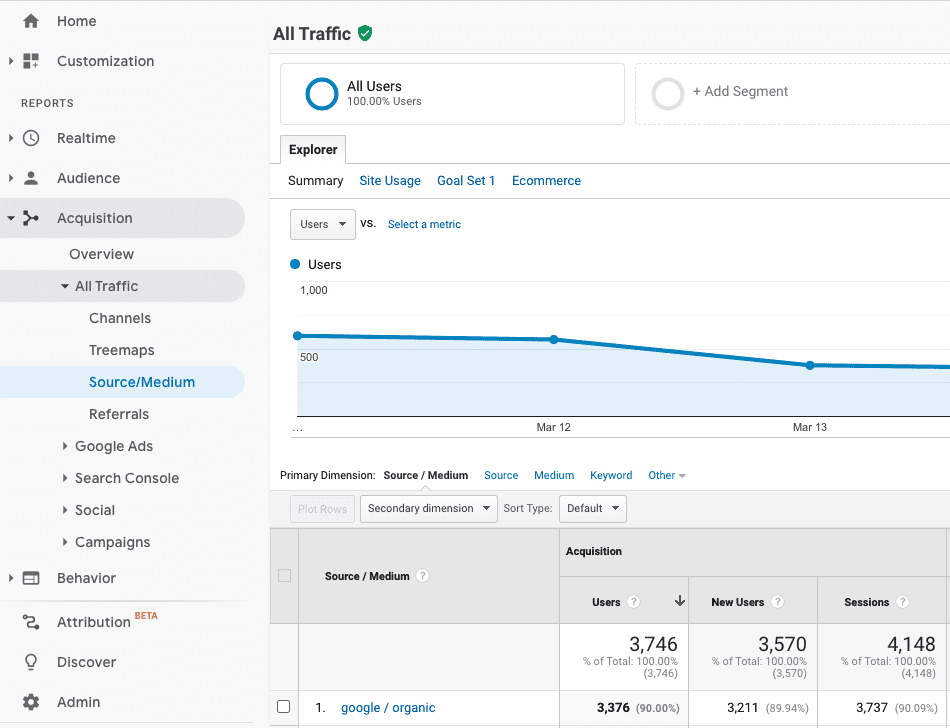Answering the Question: What is Organic Search in Google Analytics?
If you are a small business owner logging into your Google Analytics Account for the first time, it might seem a bit overwhelming. There are going to most likely be terms that you don’t understand, and charts that seem a bit over your head. That is because Google Analytics is a platform that offers data based on numerous metrics and their meanings might not be clear to you at first. One such term is organic search. A question we receive all the time is, what is organic search in Google Analytics and how does it impact my business?
Organic search refers to one of the most popular ways people find information online. Search engines.
Understanding Organic Search
The most important thing to remember is that organic search is a source of traffic in Google Analytics. It is one of the best ways to get users to your website. The technical definition according to Google is “A free listing in Google Search that appears because it is relevant to someone’s search term.” Therefore organic search excludes paid search results online such as Google Adwords, Display Ads, or any other form of paid advertising. Below is a screenshot showcasing this example.

As you can see in the example above. The first search result you see which is an ad for Sweetwater music, is actually a paid ad. Everything else below it in the Google Maps section and below is an organic search result
While Google is the most popular search engine and one of the main ways people will engage with your website, it is not the only search engine that Google considers as a source of organic traffic for your website. Google also includes the following platforms as organic:
- Bing
- Yahoo
- Baidu
- DuckDuckGo
- Yandex
Where do you find organic search in Google Analytics?
Now that we have an understanding of what organic search traffic is, you also want to make sure that you can find it easily. When you log into your Google Analytics account you will want to navigate to your Acquisition Report section. Below is a screenshot!

Why is Organic Search Important?
Organic Search plays an important role in your digital marketing and inbound marketing strategy. By understanding how your organic search traffic grows will help you to understand its value and grow your website in general. Here are a few reasons why organic search traffic is important.
1. Your Customers Use Search Engines – Search engines are one of the most popular ways for people to find information online. In fact 92% of all U.S. adults use the internet on a daily basis.
2. Your Competitors Are Optimizing For Search – Even if you don’t have much of a presence in online searches, its likely that your competitors do. If your competitor ranks above you in search results, you are missing out on website traffic.
3. Orangic Search Traffic Equals Highly-Qualified Buyers – The traffic your website receives from organic search is typically highly qualified, meaning your website visitors are genuinely interested in your content, brand, product, or services. If you see someone who clicks on an organic search result, it shows that they are actively searching for the product or information you carry!
4. Organic Search Rankings Help Boost Your Brand’s Credibility – Ranking well in online searches can help users to view your website more often, in turn boosting your website’s credibility.
Are There Other Sources of Traffic in Google Analytics?
You betcha! While the main purpose of this blog was to answer the question: what is organic search in Google Analytics, it is helpful to know a little about the other traffic sources in Google Analytics for comparison. Other traffic sources include:
Paid Search: Traffic from paid ads on SERPs
Direct: Traffic from unknown source, including users typing your website’s URL directly into their browser
Referral: Traffic from links to your website on other websites
Social: Traffic from social media platforms
Display: Traffic from display ads, such as banner ads
Email: Traffic from links in marketing emails
Does Your Website Generate New Business For You?
- Do you know how to drive new customers to your website?
- Do you know what search terms your customers are using?
- Do you know where your website currently ranks online?
- Do you know what your competitors are doing to drive new business online?